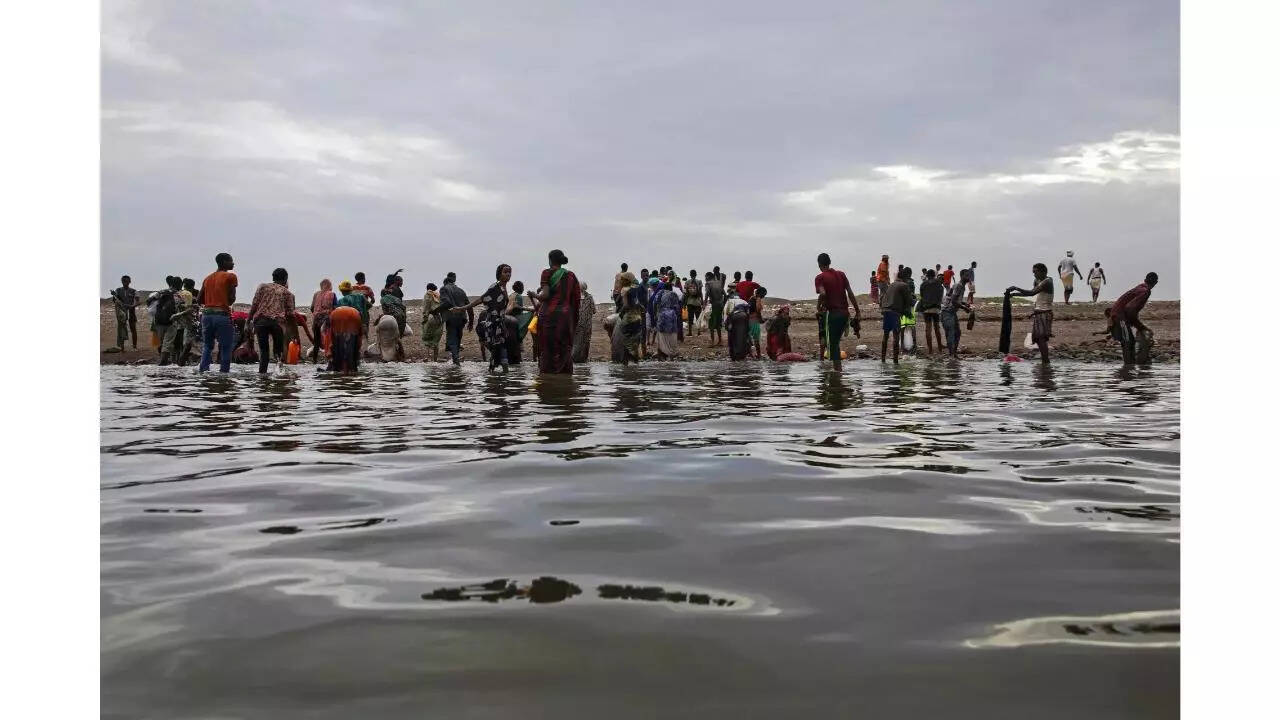Tuvalu’s Planned Climate Migration to Australia

- 10 Aug 2025
In News:
Tuvalu, a small Pacific island nation, is undertaking the world’s first planned national migration due to the existential threat posed by climate change and rising sea levels. The initiative stems from the Falepili Union Treaty (2023) signed between Tuvalu and Australia, marking a landmark case in global climate governance and migration policy.
Why Migration is Needed
- Geography & Vulnerability: Tuvalu consists of nine coral atolls with a total land area of just 25.14 sq. km and a population of ~11,000 (2022 census). Its average elevation is only 2 metres, making it highly vulnerable to flooding, storm surges, and coastal erosion.
- Climate Impact:
- NASA’s Sea Level Change Team reported that sea levels in Tuvalu were already 15 cm higher in 2023 compared to the previous 30 years.
- At this rate, most of Tuvalu could be submerged by 2050.
- Two of its nine atolls are already largely underwater.
- Scientists warn the islands may become uninhabitable within 80 years.
The Falepili Union Treaty (2023)
- Migration Provision: Australia will grant 280 Tuvaluans permanent residency annually, with access to healthcare, education, housing, and employment.
- Selection Mechanism: Migration is ballot-based. The first phase (June–July 2025) saw 8,750 registrations. The first group of 280 migrants was selected on 25 July 2025.
- Scale: Along with other pathways to Australia and New Zealand, up to 4% of Tuvalu’s population could migrate annually. Within a decade, nearly 40% of the population may relocate, although some may return periodically.
- Objective: To ensure “mobility with dignity”, preventing Tuvaluans from becoming stateless climate refugees.
International Significance
- Precedent for Climate Migration: This is the first-ever state-backed relocation of an entire population due to climate change, setting a model for other vulnerable island nations.
- Global Climate Justice: Tuvalu’s case highlights the plight of Small Island Developing States (SIDS) and the urgent need for stronger international climate agreements.
- Diplomatic Signalling: Tuvalu’s Prime Minister Feleti Teo has called for a new global treaty safeguarding nations at risk from rising seas.
About Tuvalu
- Location: Polynesian island nation in the Pacific Ocean, midway between Australia and Hawaii.
- Capital: Funafuti.
- Population: ~11,000 (second least populous UN member after Vatican City).
- Economy: Relies on fishing licenses, foreign aid, and remittances from Tuvaluan seafarers.
- UN Membership: Since 2000; actively champions the rights of climate-vulnerable states.
